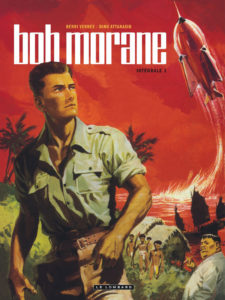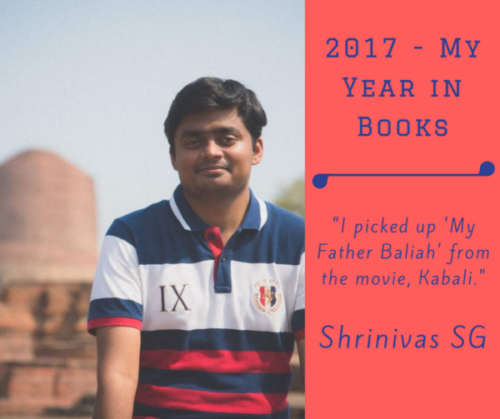by Chandramohan Nair
On a chilly, rainy winter evening in Brussels, from the misty window of my room in our first-floor apartment, I watched the few people on the streets hurrying home from the nearby supermarket. I could see the traffic moving slowly along the charming, tree-lined Avenue Armand Huysmans and spotted Michelle’s red Mini a block away. This gave me time to revise my French lesson once more before she reached home. Michelle was my French tutor and she was getting me up to speed with my fourth standard French lessons.
We had arrived in Brussels just a few months before. I had come in with a dry cough which got worse with each passing day. Tests revealed that I had a serious lung infection. In addition to six months of antibiotic injections, the doctor had advised that I should take the remainder of the academic year off. My boyhood had been carefree until then but I now found my world turned upside down. Initially, it was just the sight of our fridge almost packed full with the injection vials that made me depressed. I was overwhelmed thinking of the number of jabs I would have to take to complete the treatment. I gradually got used to the daily injection routine but my illness and the constant confinement at home meant my mind was frequently troubled by thoughts of mortality. From being an extroverted kid who was always playing games or having fun outside the house, I suddenly became anxious, reclusive and prone to bouts of depression.
Michelle’s thrice-a-week classes offered a welcome break from the monotony. She worked as an office secretary and gave tuition to supplement her regular income. She had a schoolmistressy air about her and brought in a scent of perfume and cigarettes with her. She taught without passion, looking bored at times, and would get annoyed if I asked her to repeat a question or an explanation. We would end the class before schedule on most days and that would be the only time she would look relaxed, sipping hot tea and relishing the Indian snacks that Amma prepared for her.
But my French classes had got me captivated by the written word. My textbook was beautifully illustrated and I would spend all my time reading and imagining a world based on the stories in the book. I picked up the language quite quickly and was soon able to read on my own. In those gloomy winter months – when you had to be lucky to spot the sun for even an hour each day – comics, books, newspapers and magazines became my constant companions to fend off loneliness. My fascination for words extended to English too, so in addition to Asterix and Tintin comics, Bob Morane and other French adventure books I was consuming whatever English language material that I could digest – from abridged editions of classics to the sports pages of the The Times and The Hindu.
It was a few months into my treatment that I suddenly developed an urge to write. One of the magazines that my father would get for me was an Indian children’s magazine in English called Sunshine, if I remember the name correctly. The magazine had a few pages devoted to poems from its young readers and these poems seemed to have triggered my writing impulse. I was thrilled to bits when my very first submission got published. It was written in the fashion of a nursery rhyme, titled Happy Days and conjured up images of carefree and fun-filled days. A few more poems, with similar rhyming patterns and subject matter, were submitted and published. I don’t remember having had to particularly struggle to write those early poems. They seemed to have written themselves. My father, who always harboured aspirations of becoming a writer himself, kept encouraging me. By the end of the treatment, however, I found that my creative muse had weakened considerably and I was more preoccupied with getting back to school and resuming all the normal activities I had missed out on.
Looking back, I can see that my fledgling attempts at writing were a result of the prolonged malaise I was experiencing and motivated primarily by an emotional need to create a happier world for myself than the one I was in at that time. Although I didn’t write any further during my Brussels stay, my six months of convalescence had made me a more reflective person and appreciative of writing of any kind. A trait which never fully left me and probably the reason why I am writing today.
During my high school and college days, back in India, writing became a sporadic affair usually centred around the ritual publication of the annual school or college magazines. These were typically light pieces, written about a topic du jour, that had very little literary merit but retained their nostalgia value for years.
My reading habit, though, continued apace thanks largely to the well-stocked British Council Library in Trivandrum and my father’s own collection of yellowed and grimy classics which had travelled with him for many decades. But I soon found out that any book that contained anything more than a tiny dose of angst or suffering would see me slipping into melancholia. So out went the vast majority of great literature and in came Jerome K. Jerome, Stephen Leacock, Alan Coren and Punch, and all of PG Wodehouse, Agatha Christie and Conan Doyle. When I ran out of these I found succour in Richmal Crompton’s mischievous William and in Billy Bunter, the notorious Owl of the Remove.
Although I was not writing, I was attracted to the image of a writer as a romantic figure and soon after completing my engineering course I applied for the post of trainee journalist at a leading publication. I was called all the way to Madras only to be told that although they liked my writing they thought it would be a criminal waste of my degree if I were to switch streams.
Ironically, I did just that, working for banking and technology companies over the next four decades. During this period, I did plenty of writing – marketing collateral, proposals, study reports and white papers. All reasonably well written and fit for purpose but nothing that could be considered remotely creative. Fiction completely dropped out of my reading list and was supplanted by books, magazines and publications on finance, management and information technology. And in all those years I never felt like creating a piece of prose or poetry and had reconciled myself to the fact that any writing talent I had would remain latent. An abiding passion for music remained my only link to the world of arts.
But life has a habit of throwing surprises.
I was going through some rough times healthwise when Muhammad Ali, one of my great idols as a boy, died. The television channels were immediately full of eulogies for Ali and video clippings of his famous fights, with little mention of the ravages he and other boxers had suffered in the ring. I felt an irresistible urge to write a more balanced piece highlighting this aspect of what I now considered an inhuman sport. It was published, albeit as a considerably edited letter, in a mainstream newspaper and put me in a better frame of mind. I realised that writing clearly had a therapeutic effect on my mind.
After that, I was determined to make writing a habit and penned a letter each week on some issue about which I had strong feelings. Letter writing was fun – I enjoyed the challenge of conveying a point of view using a few well-worded sentences and the gratification was immediate if the letter got published.
I also found myself reading fiction again. I didn’t have the attention span to read novels and preferred short stories. Chekhov, Raymond Carver, Flannery O’Connor and the few stories by Orwell left deep impressions. Writers with different worldviews and styles but all blessed with an intuitive understanding of human nature and a masterly command of the English language.
Maybe it was inevitable that at some point I would become curious to know whether I could write a creative piece myself. I chose a childhood pastime – flying kites – and wrote about it as truthfully and aesthetically as I could. It came out reasonably well and much to my surprise even got published.
Since then, I have been on an uncharted but enthralling voyage trying to develop my writing ability. The writing process itself has been an often frustrating but always fulfilling exercise to find the right voice, words and structure to convey the story or emotion that is in your mind. The delight when you get it right, and you instinctively know when you do, is a reward in itself. Luckily, I have been helped, in no small measure, by some wonderfully supportive editors whose passion for writing is truly inspiring.
At this stage in my life, I also find that writing provides me with fresh insights about life and a sense of purpose in living. At another level, perhaps, it is also a despairing statement of existence that one is making which one hopes will outlive the ephemeral nature of one’s being.
Whatever the reason, I pray that my capricious muse will not desert me anytime soon.
Picture from www.bdfugue.com






